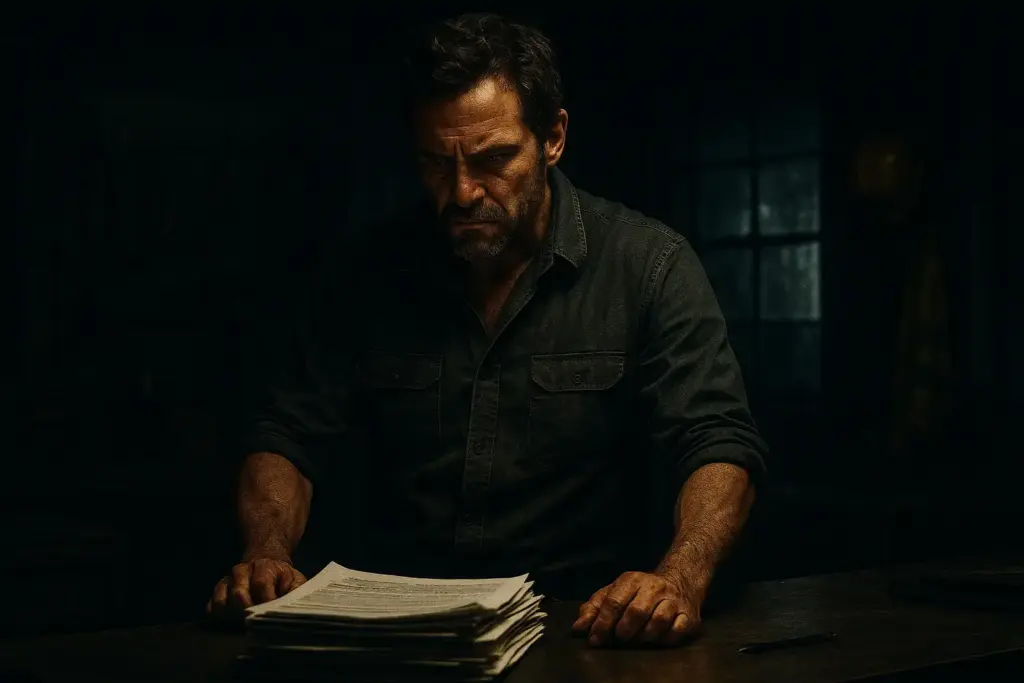The Moment That Made Him Look Twice

If you’re not sure when to audit your workers comp policy, you’re not alone, and waiting too long could turn into a very expensive lesson.
Mike ran a growing landscaping company with a few trucks, a tight-knit crew, and more jobs than he could keep up with. Insurance? It was just another line item on his P&L. As long as nothing blew up, he figured he was covered.
But then his buddy Jeff, who ran a roofing business across town, got hit with a surprise audit. A denied claim from a part-time worker triggered a full review. Turns out Jeff’s policy hadn’t been updated in years. The state stepped in. Back pay. Penalties. And a premium hike that hit right when cash flow was already tight.
That’s when Mike paused. His business had changed a lot over the last year, new hires, new equipment, bigger jobs. He started wondering if his own policy could be full of landmines he didn’t even see.
This is where a smart business owner pulls the handbrake. Not after something goes wrong, but before.
So when should you audit your workers comp policy? The answer is simple: right before renewal. That’s your chance to fix what’s outdated, correct bad data, and avoid the kind of stress Jeff just lived through.
Why It Pays to Audit Your Workers Comp Policy Before Renewal
Workers comp can feel like a “set it and forget it” policy, until it isn’t. If the numbers are off or the job roles don’t match your current team, you could be staring down a surprise bill, or worse, a denied claim when your employee needs help the most.
Every year, thousands of business owners find themselves scrambling during audit season. Not because they did anything shady, but because their policy no longer reflects how their business actually runs. Maybe they grew. Maybe they downsized. Maybe they shifted from part-time help to full-time roles. All of these changes impact what they should be paying, not just what they are paying.
Here’s the hard truth: if you wait until a problem shows up, it’s too late to fix it.
That’s why the smartest move is to audit your workers comp policy before renewal. This gives you the chance to review job classifications, double-check payroll estimates, and update coverage for any new team members or subcontractors, all without scrambling under a deadline or under pressure.
Let’s say your team’s taken on more manual labor lately, moving from mostly clerical to more hands-on work. If your policy still classifies them as low-risk employees, that mismatch could trigger a red flag in an audit. And if an injury happens before that correction? The fallout can be costly.
Or maybe your business shrank this year. If you don’t audit your workers comp policy and update payroll estimates, you’re likely overpaying for coverage you don’t need. That’s money out the door that could’ve gone toward raises, repairs, or even just a little breathing room in the budget.
Bottom line: the annual renewal window isn’t just a box to check, it’s your once-a-year chance to catch errors before they snowball. Use it.
When to Audit Your Workers Comp Policy for Maximum Impact
Timing is everything. And when it comes to workers comp, the best time to make changes isn’t after you get the renewal notice, it’s right before.
Here’s why: once your policy renews, you’re locked into the numbers you gave your carrier. If those numbers don’t reflect what’s actually happening in your business, like payroll changes or shifts in job duties, you could be stuck with premiums that are way off the mark. That mismatch can lead to costly surprises during the carrier’s audit at the end of the term.
By choosing to audit your workers comp policy before the renewal date, you give yourself the power to:
- Adjust payroll projections to match actual business activity
- Update job classifications to reflect current duties
- Add or remove subcontractors who might affect your exposure
- Catch missing certificates of insurance that could trigger penalties
- Fix clerical errors before they become financial problems
Let’s say your business has grown steadily over the last 9 months. You’ve added two full-time workers and picked up larger contracts. If your policy still reflects last year’s numbers, your premiums will be off, probably in the insurance company’s favor.
Or maybe you’ve shifted your operations. That part-time warehouse role turned into a delivery driver gig, which carries more risk. If your policy hasn’t kept up, and there’s an accident, you could be in a fight over whether the injury is even covered.
None of this is about gaming the system. It’s about accuracy. The more precise your policy is, the more predictable your costs, and the fewer headaches you’ll face when your carrier comes calling.
So when should you audit your workers comp policy? At least once a year, right before renewal hits. That’s your clean slate moment. A chance to bring the policy in line with reality, not just hope everything works out later.
Signs It’s Time to Audit Your Workers Comp Policy Now
Waiting for renewal isn’t always the best move. Sometimes, changes in your business can create blind spots in your coverage long before that date rolls around. If you miss those shifts, you could end up underinsured, overpaying, or exposed to penalties during a carrier audit.
Here are some clear warning signs that you should audit your workers comp policy immediately, even if renewal is months away:
1. Your Team Has Grown (or Shrunk)
Hiring a few new employees? Letting some go? Changes in headcount and payroll can throw off your policy in either direction. If you’re paying premiums based on outdated numbers, you’re either overspending or setting yourself up for a painful audit correction later.
2. You’ve Reorganized Job Roles
Let’s say your receptionist now helps out in the warehouse, or your field crew started doing demo work in addition to installs. These shifts might seem small, but they can seriously affect risk classifications. If the carrier doesn’t know what roles your employees are actually performing, they might deny a claim, or back-charge you after the fact.
3. You’re Working with More Subcontractors
Hiring independent contractors? If they don’t carry their own workers comp (with valid certificates), the liability could fall back on you. One missing document could mean you’re held responsible for someone else’s injuries, plus the unpaid premium.
4. You’ve Had a Claim or Close Call
An injury, even a minor one, should always trigger a review. It’s a chance to ask: is this covered the way I thought it was? Could this incident have exposed a gap I didn’t see before?
5. You Changed Business Locations or Services
Moved to a new warehouse? Added roofing to your list of services? Changes in location or scope can carry higher risk ratings. If you didn’t update your policy, it might not reflect the kind of work you’re actually doing now.
If any of these sound familiar, don’t wait. Audit your workers comp policy as soon as possible. A 15-minute check-in with your agent could spare you thousands down the road, not to mention a massive headache.
How to Audit Your Workers Comp Policy Without the Headache
The good news? You don’t need to be an insurance expert to get this right. Auditing your policy doesn’t have to be a drawn-out process or a confusing chore. In fact, just asking the right questions once a year can keep your coverage clean and your costs predictable.
Here’s what to review when you audit your workers comp policy:
1. Payroll Estimates
Start here. Are your projected payroll numbers still accurate? If your team has grown, shrunk, or worked fewer hours than expected, your premium could be way off. An inflated estimate means you’re overpaying. An underestimated one could lead to a big adjustment later.
Quick fix: Pull recent payroll reports and compare them to what’s listed in your current policy.
2. Employee Classifications
Not all jobs carry the same risk, and insurance companies price policies accordingly. Make sure each employee is still listed under the right classification. If your office manager is suddenly helping in the field, or your drivers now do installs, that could change your rate.
Quick fix: Walk through your current team roles with your agent and confirm the class codes are accurate.
3. Subcontractor Coverage
If you use 1099 workers or subcontractors, you’re probably collecting certificates of insurance, but are they up to date? If a cert is expired or missing, you could be on the hook for their injuries or subject to penalties.
Quick fix: Set a reminder to collect updated COIs every quarter and keep them organized.
4. Claims History
Even if a claim was small or resolved quickly, it can still affect your experience modifier (which impacts your premium). Reviewing past claims can help you understand what your carrier sees, and what adjustments might be needed.
Quick fix: Ask your agent for a copy of your current mod score and review any recent claims on file.
5. Business Changes
Any shift in location, services, or scale should trigger a policy review. Moved to a new state? Started offering new services? Those details need to be in your file.
Quick fix: Make a checklist of any operational changes since your last renewal and go over it with your agent.
Auditing doesn’t have to mean hours of paperwork or legal lingo. It’s about accuracy, and protecting the business you’ve worked hard to build. If you audit your workers comp policy once a year, especially before renewal, you’ll stay ahead of the curve and avoid the scramble so many others fall into.
Mike’s Peace of Mind (And Yours Too)
When Mike sat down to review his policy, he wasn’t looking for trouble, he just didn’t want to get blindsided like his buddy Jeff. What he found were a few small mistakes: one outdated job classification, payroll numbers that hadn’t been updated in two years, and a subcontractor certificate that was missing. None of it seemed urgent… until he realized what it would’ve cost him during an audit or a claim.
Now, he does a quick check every year before renewal. No drama. No surprises. Just a clean policy that actually matches how his business runs today.
You don’t have to overhaul your whole insurance setup to get that kind of peace of mind. You just need to take a few minutes once a year to audit your workers comp policy, especially before it renews.If you’re not sure where to start, or you’d rather not deal with it alone, we’re here to help. Get honest advice and real protection that fits your business. Learn more about Workers Compensation Insurance and how to make it work better for you, without the guesswork.
